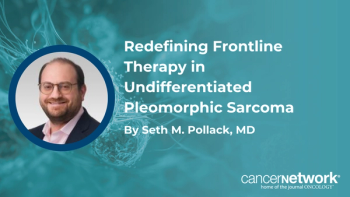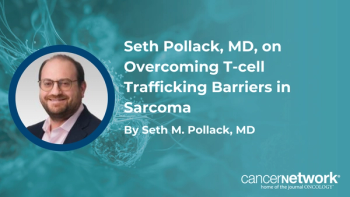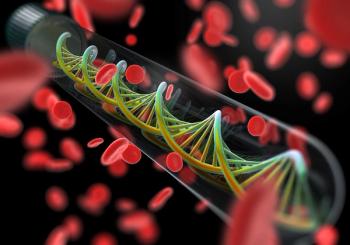
Pazopanib Shows Promise in Phase I Pediatric Sarcoma Trial
The multikinase angiogenesis inhibitor pazopanib was well tolerated and exhibited some responses in pediatric patients with soft-tissue sarcomas and other refractory solid tumors in a phase I trial.
The multikinase angiogenesis inhibitor pazopanib was well tolerated and exhibited some responses in pediatric patients with soft-tissue sarcomas and other refractory solid tumors in a phase I trial. The results of the study were
Multi-tyrosine kinase inhibitors are generally used as drugs for renal cell carcinoma, according to Julia L. Glade Bender, MD, of Columbia University in New York City. “Pazopanib, however, is also approved for the treatment of adult chemorefractory soft-tissue sarcomas,” she said in an email. “Pediatric solid tumors, which are commonly mesenchymal origin, include the sarcoma family of tumors.”
In the new phase I study, researchers enrolled 51 pediatric patients to receive pazopanib once daily in 28-day cycles at four dose levels from 275 mg/m2 to 600 mg/m2. The maximum tolerated dose (MTD) was established at 450 mg/m2 for tablet formulation and at 160 mg/m2 for power suspension. At that dose, the area under the curve (AUC) values were comparable to those seen in adults treated at equivalent doses.
Toxicities were generally mild with the study drug. Toxicities related to pazopanib that required dose modification and/or discontinuation of the drug in later cycles included tumor pain in two patients, ALT elevation in two patients, as well as diarrhea, myalgia, hand-foot syndrome, weight loss, and others. Three patients treated at the MTD had asymptomatic and reversible decreases in left ventricular systolic function.
Two patients achieved a partial response; one had hepatoblastoma and one had desmoplastic small round-cell tumor. Eight patients had stable disease for at least 6 cycles of treatment, and seven of those patients had sarcoma (including rhabdomyosarcoma and Ewing sarcoma). The investigators tested eight patients with dynamic contrast-enhanced magnetic resonance imaging, and all showed decreases in tumor blood volume and permeability.
“These early results are encouraging and suggest that pazopanib should undergo further evaluation in children with refractory sarcomas or other solid tumors,” Dr. Bender said.
Study Details
The median age of patients was 12.9 years, ranging from 3.8 to 23.9 years; 26 were male and 25 were female. Patients had a median of two prior chemotherapy regimens; 39 patients had prior radiation therapy, and 15 had received prior VEGF-blocking therapy. Sarcomas of various types accounted for 28 of the 51 patients, including rhabdomyosarcoma, osteosarcoma, synovial sarcoma, Ewing sarcoma, and others. Seventeen patients had some form of brain tumor including high-grade glioma, ependymoma, and others.
Newsletter
Stay up to date on recent advances in the multidisciplinary approach to cancer.
Related Content




Understanding RECIST Responses to Radiation in Retroperitoneal Sarcoma









































